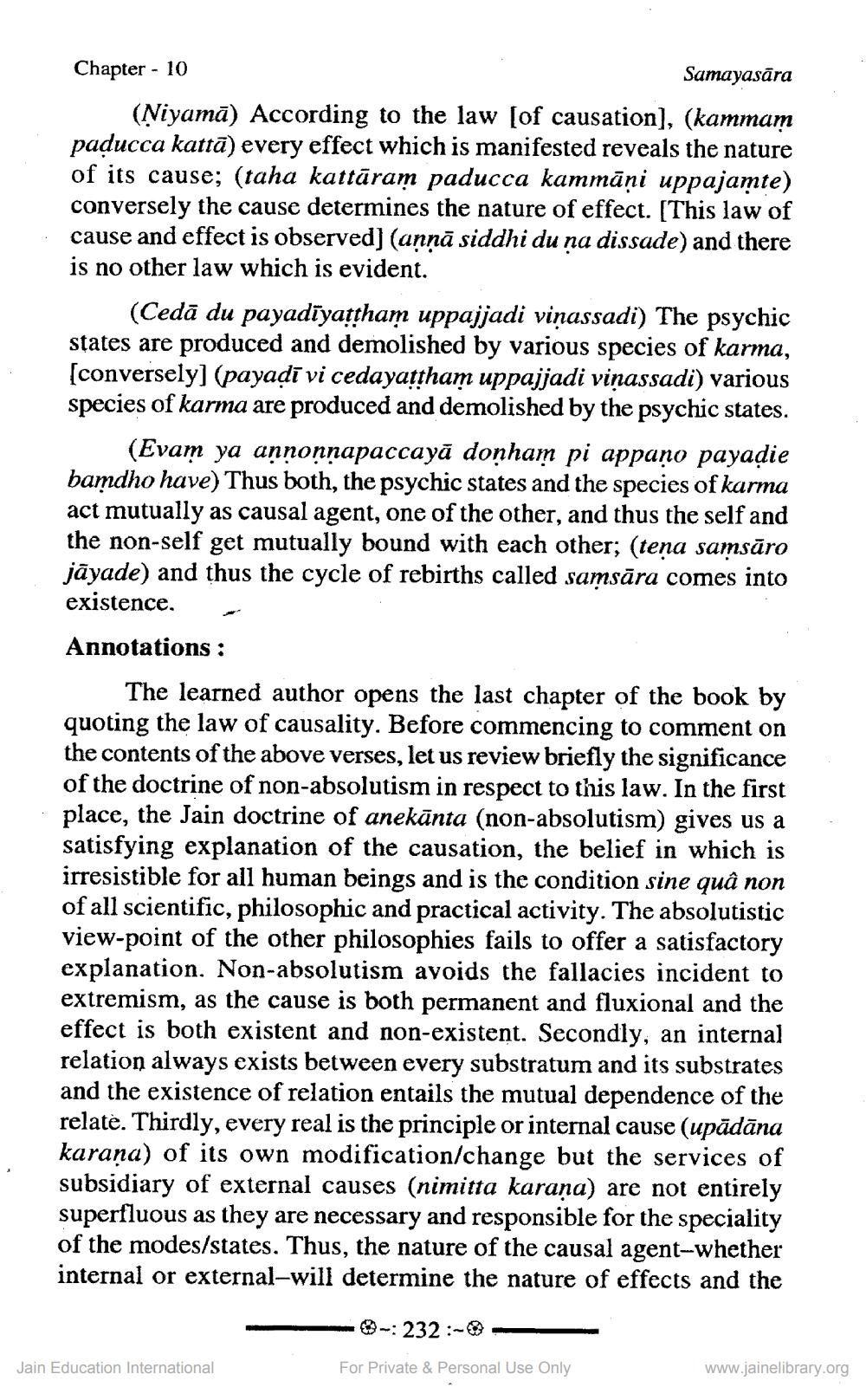________________
Chapter - 10
Samayasara
(Niyamā) According to the law [of causation], (kammam paḍucca katta) every effect which is manifested reveals the nature of its cause; (taha kattāram paducca kammāņi uppajamte) conversely the cause determines the nature of effect. [This law of cause and effect is observed] (aņņā siddhi du ṇa dissade) and there is no other law which is evident.
(Ceda du payadīyaṭṭham uppajjadi viņassadi) The psychic states are produced and demolished by various species of karma, [conversely] (payaḍī vi cedayaṭṭham uppajjadi viņassadi) various species of karma are produced and demolished by the psychic states.
(Evam ya annonṇapaccayā donham pi appano payadie bandho have) Thus both, the psychic states and the species of karma act mutually as causal agent, one of the other, and thus the self and the non-self get mutually bound with each other; (tena samsāro jāyade) and thus the cycle of rebirths called samsara comes into existence.
Annotations:
The learned author opens the last chapter of the book by quoting the law of causality. Before commencing to comment on the contents of the above verses, let us review briefly the significance of the doctrine of non-absolutism in respect to this law. In the first place, the Jain doctrine of anekānta (non-absolutism) gives us a satisfying explanation of the causation, the belief in which is irresistible for all human beings and is the condition sine quâ non of all scientific, philosophic and practical activity. The absolutistic view-point of the other philosophies fails to offer a satisfactory explanation. Non-absolutism avoids the fallacies incident to extremism, as the cause is both permanent and fluxional and the effect is both existent and non-existent. Secondly, an internal relation always exists between every substratum and its substrates and the existence of relation entails the mutual dependence of the relate. Thirdly, every real is the principle or internal cause (upādāna karaṇa) of its own modification/change but the services of subsidiary of external causes (nimitta karaṇa) are not entirely superfluous as they are necessary and responsible for the speciality of the modes/states. Thus, the nature of the causal agent-whether internal or external-will determine the nature of effects and the
Jain Education International
-: 232:
For Private & Personal Use Only
www.jainelibrary.org




